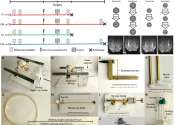How the thymus trains T cells to fight infections
T cells are a special class of white blood cells that patrol the body and attack infected or foreign tissue. They learn to distinguish friendly proteins from dangerous ones in an organ called the thymus. However, when T cells ...
Aug 2, 2022
0
85








